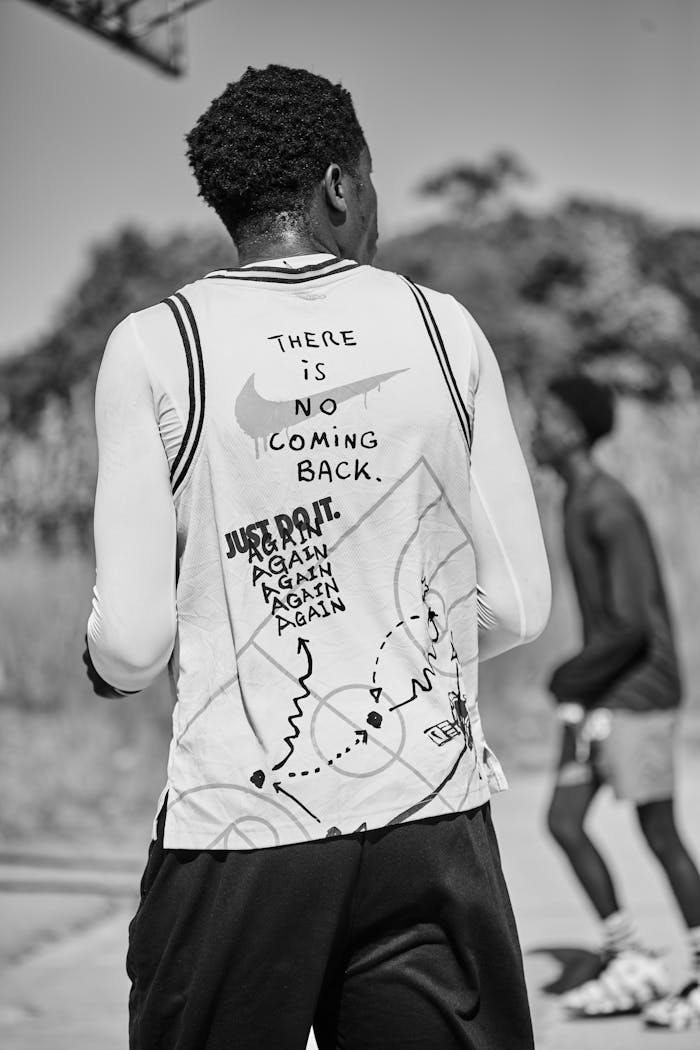Mental Toughness – Resilience
In the world of sports, talent alone doesn’t guarantee success. Any seasoned coach will tell you that mental toughness is often the deciding factor between a good athlete and a great one. For student-athletes, this concept becomes even more critical as they juggle not just the pressures of competition but also the demands of academic life and personal growth. Mental toughness, or resilience, isn’t something you’re born with—it’s developed through deliberate practice and a commitment to improving oneself both on and off the field.
As someone who has coached student-athletes for years, I’ve seen firsthand the impact of mental toughness on performance. Building mental resilience is about more than just “toughing it out”; it’s about understanding how to control your emotions, push through adversity, and remain focused on long-term goals, even when the going gets tough.
What Is Mental Toughness?
At its core, mental toughness is the ability to stay calm under pressure, maintain focus, and perform at a high level regardless of the situation. It’s the mindset that enables athletes to push beyond their limits and persevere in the face of setbacks—whether it’s a bad game, an unexpected injury, or an overwhelming academic load.
For student-athletes, resilience plays a vital role not just in achieving athletic success, but in maintaining balance in life. This is especially important at the high school and college levels, where external pressures can be enormous. The ability to recover from disappointment and stay focused on improvement is what separates top-tier athletes from the rest.
Key Elements of Mental Toughness
- Focus Under Pressure: Student-athletes often face high-stakes environments. Whether it’s a game-winning moment or the pressure of juggling academics and sports, focus becomes critical. Athletes who develop mental toughness can block out distractions and zero in on the task at hand. A well-developed pre-game routine can aid in this focus, as it prepares the mind to enter a state of peak concentration.
- Emotional Control: In sports, emotions run high—whether it’s the euphoria of winning or the devastation of defeat. Athletes who lack emotional control can become overwhelmed and lose sight of their goals. Mental toughness involves managing these emotions, staying composed in stressful situations, and using setbacks as learning experiences.
- Resilience in the Face of Adversity: Every athlete will face challenges—injuries, tough losses, or personal struggles. Resilient athletes view these moments as opportunities to grow. Rather than allowing adversity to derail their progress, they embrace the struggle and emerge stronger. For student-athletes, this resilience translates into both sports and life challenges, like academic pressure or personal setbacks.
- Self-Belief: Believing in your abilities, even when the odds are against you, is a cornerstone of mental toughness. Student-athletes need to cultivate an unwavering belief in their potential, knowing that hard work, discipline, and perseverance will lead them to their goals. Self-belief, combined with a growth mindset, fuels their capacity to overcome obstacles.
Practical Ways to Build Mental Toughness
1. Goal Setting
Setting specific, measurable, and attainable goals is one of the most effective ways to develop mental toughness. When student-athletes have clear goals, they are more motivated to push through obstacles. Break down large goals into smaller, manageable steps, and celebrate progress along the way. This helps reinforce the mindset that improvement is a process, not a destination.
2. Mindfulness and Visualization
Mental resilience is as much about training the mind as it is about training the body. Mindfulness techniques—such as meditation and controlled breathing—can help athletes stay grounded, especially during high-pressure moments. Visualization is another powerful tool: student-athletes can mentally rehearse specific scenarios, like a game-winning shot or an exam, to prepare their minds for success. The more they visualize success, the more likely they are to achieve it.
3. Embrace Failure as a Learning Opportunity
Every athlete will experience failure, whether it’s a poor performance or a missed opportunity. The key is to use failure as fuel for future success. Encourage student-athletes to analyze what went wrong, learn from their mistakes, and refocus their efforts. The ability to bounce back quickly from failure is a hallmark of mental toughness.
4. Develop a Strong Support Network
Building mental resilience isn’t a solo journey. Having a strong support network—coaches, teammates, family, and mentors—can make a world of difference. Surrounding student-athletes with individuals who believe in them, even during tough times, can help them stay motivated and focused. Encourage student-athletes to lean on this network when they need encouragement or advice.
The Long-Term Benefits of Mental Toughness
While mental toughness undoubtedly impacts athletic performance, its benefits extend far beyond the field. Student-athletes who develop mental resilience are better equipped to handle the pressures of life. They are more likely to excel in academics, build strong relationships, and navigate the inevitable challenges that come their way.
For coaches and mentors, fostering mental toughness in student-athletes is one of the greatest gifts we can give them. It’s about more than helping them win games—it’s about equipping them with the tools they need to succeed in life. Mental toughness doesn’t just make better athletes; it makes better people.
My Final Thoughts
In the end, mental toughness is not an inherent trait but a skill we can develop over time. With focus, discipline, and the right mindset, student-athletes can build resilience that will serve them both in sports and beyond. As coaches and mentors, we play a critical role in guiding them on this journey, helping them become the best versions of themselves, no matter the challenge ahead.
Until the next time, keep it resilient, keep it strong, and keep it moving!

